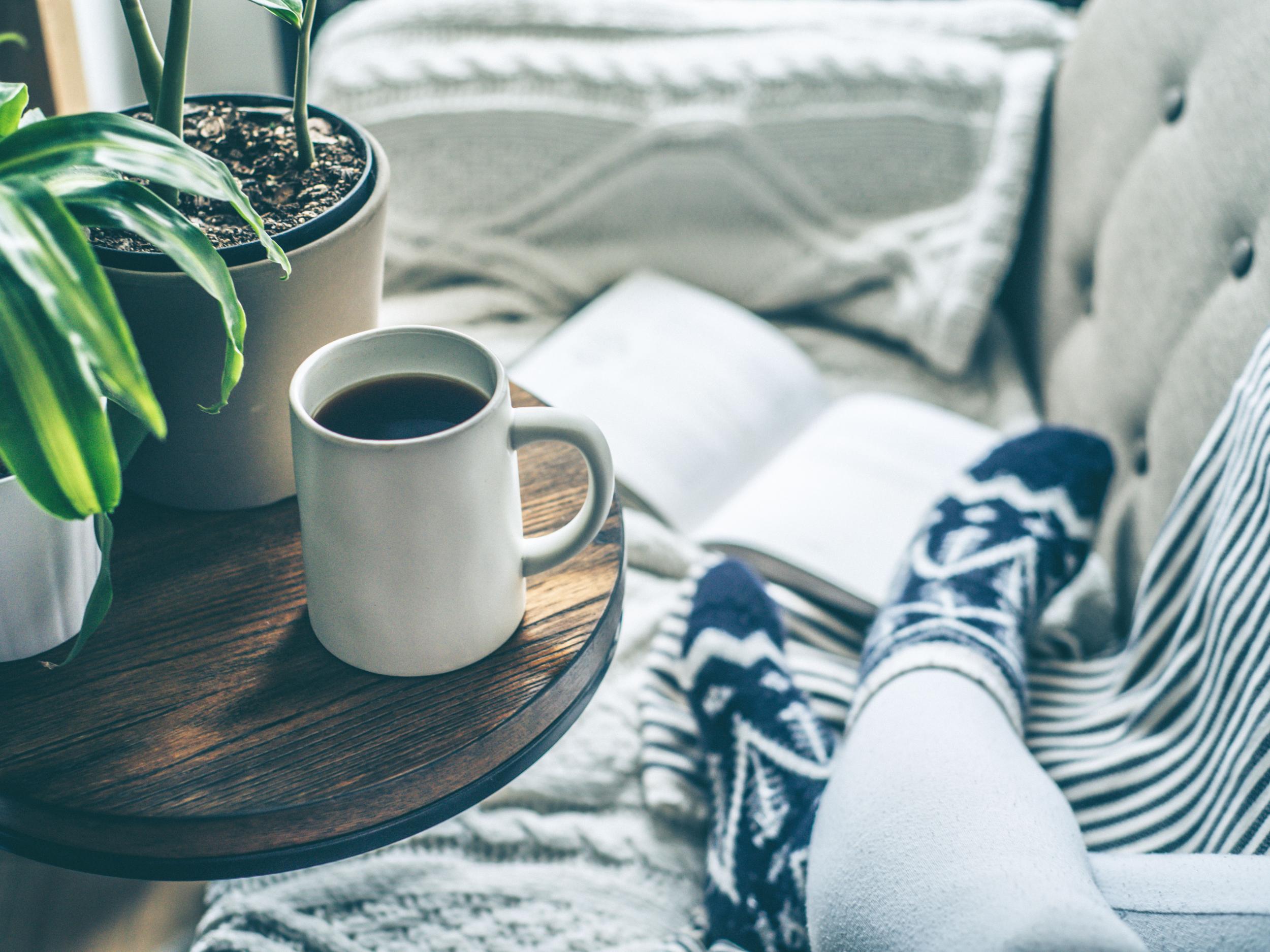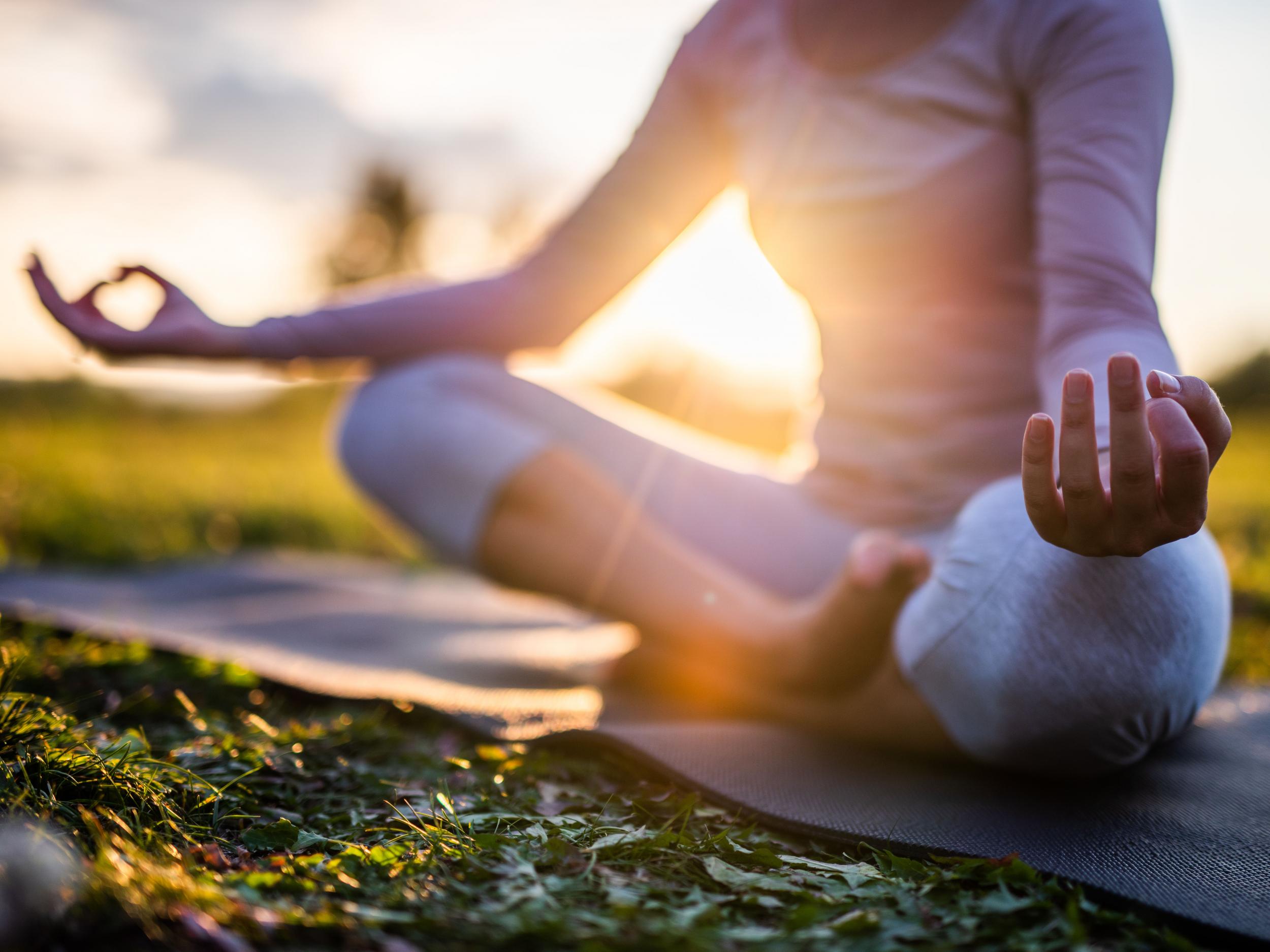Why wellness is the millennial self-help
While self-help doctrines espouse radical personal change, self-care is all about cultivating the you that already exists

“Wellness” is a word that has come to encompass our latest dominant sociocultural obsession – how to take care of ourselves in the world. It may, at one point, have been popularly understood as an extension of self-help, a category of literature and speaker circuits that is devoted to personal optimisation (and often, productivity). But more recently, under the potent influence of millennial values, wellness has been positioned and marketed as self-care. This wellness is softer, gentler, more forgiving than its self-flagellating forebear. Definitely more fun.
Maybe the new wellness is – to borrow from Democratic primary candidate and self-help author Marianne Williamson – a return to “love,” instead of fear?
Self-care is often critically characterised as a market for purchasable experiences like massages, manicures and “me time”. But its origins are in a series of loose, secular rituals meant to calm the nervous system, and are informed in part by the work of feminist writers of colour, including Audre Lorde and bell hooks, both of whom wrote about caring for one’s self in oppressive conditions. In A Burst of Light, Lorde writes, “Caring for myself is not self-indulgence, it is self-preservation, and that is an act of political warfare.”
Of course, the concept has been simplified and broadened to mean any number of things.
On Instagram, the axis of millennial life, there are about 2 million posts tagged #selfhelp, while there are around 18 million for #selfcare. Those form a soft-focus sea of cups of tea, journals, hand-drawn quotations, bed-nests of blankets, books, cats and snacks – basically, anything that might make someone feel good. It’s far removed from the self-help-style wellness that emphasises labour and self-denial: punishing exercise classes, cleanses, detoxes and restrictive diets. That all might feel increasingly irrelevant in the context of the low-wage, ultra-precarious and generally diminished economic circumstances that millennials have found themselves in, and in the context of the anxieties of this era. The self of established, self-improving, self-help seeks to conquer. The self of the newer, kinder, weirder self-care seeks nourishment instead.
The literature
If self-help is about fixing something, self-care thinks you’re already great. So much of current, trendy self-help dovetails with business management and entrepreneurialism, and a lot of the rest of it feels like it’s from another psychological era: It might be temporarily comforting, and even galvanizing, to engage in “the subtle art of not giving a _ or to practice “the life-changing magic of not giving a _” or to “un_ yourself.” Before this era of tongue-in-cheek titles, self-help sought to categorise and instruct, as seen in best-selling titles like the heteronormalising Men Are from Mars, Women Are from Venus; the productivity mandating The Seven Habits of Highly Effective People; the personality corrective How to Win Friends and Influence People; and the law-of-attraction guide The Secret.
But the self-consciously edgy formulas, and the even-cornier, prescriptive, top-down self-help books that engendered them, don’t necessarily wonder. They skip over the energy of empathy, warmth, tenderness and inclusion that is the best stuff of the millennial imagination.
If self-help is about how to do, self-care is about how to not do. Self-care, though, has no organising rules, slogans or major, best-selling books – yet. Jenny Odell’s newish book, How to Do Nothing: Resisting the Attention Economy, and Adrienne Maree Brown’s Pleasure Activism espouse some of self-care’s feel-good ideologies (as do the seemingly infinite journal-ish workbooks and colouring books on the market), but the literature of self-care-informed wellness lives much more iteratively and personally on Instagram, in (frequently misspelt and misattributed) inspirational quotations and super-long captions, and on lingering blogs.
And yes, much of the wellness content of the internet is performative, metaphorical or gestural. The small daily efforts of self-care – establishing boundaries, going to the doctor, taking three conscious breaths and just doing less – aren’t that clickable.

There is a self-help/self-care Venn diagram, however, and the overlapping section could be categorised as “spiritual self-help”, a classification that describes the work of Williamson, as well as popular authors like Julia Cameron (whose creativity manual The Artist’s Way is one of the most enduring books in the broader self-help genre, its purpose and style seemingly invulnerable to social and cultural shifts), Eckhart Tolle, Gabrielle Bernstein and Danielle LaPorte. Spiritual self-help seeks less often to fix, and more often, to understand, and to soothe and calm like self-care.
At the intersection of spiritual self-help and self-care is the reason for them: the pursuit of something deeper, something more elemental.
The leaders and vendors
The authorities of a self-help-informed kind of wellness, who sell a specific programme to live by and complain about, include exercise alphas like Jillian Michaels, Billy Blanks or any of the locally worshipped spinning or CrossFit instructors, as well as diet gurus like Melissa Hartwig of the Whole30 (so many rules!) and Dr Alejandro Junger, of the Clean program.
The original and maybe only self-care star is Audre Lorde, whose conceptualisation of self-care as a form of protest is the most critical.
Gwyneth Paltrow is a kind-of Gen X corporate wellness avatar – the Oz of an industry that confidently depends on women trying to mitigate their various anxieties. Her Goop empire sells self-care products, often at exclusive price points.
But other wellness entrepreneurs serve the kinds of seekers who want spirituality and connection and self-awareness along with, say, great skin. These include Amanda Chantal Bacon of Moon Juice, a nu-groovy operation that specialises in juices and adaptogenic “dusts”; Erica Chidi Cohen, a co-founder of LOOM in Los Angeles, which offers support around sexual and reproductive health and parenting; Ty Haney, the founder of Outdoor Voices, the Austin, Texas-based “you-do-you” apparel brand; and Liz Tran, who founded Reset, a new wellness space, or “sanctuary”, in Manhattan that offers classes and workshops in the “formation of the integrated self”, with corporate career coaching, sound baths and astrology. (The space could be a sign of what’s next: Instead of millennial pinks and modernist clutter, here are jewel tones, warm wood and an 800-pound smokey quartz crystal from Madagascar.)
Authority vs the Me-Archy
Many of the newer wellness products are direct-to-consumer. The individualisation of self-care wellness includes custom vitamins from subscription services, like Ritual and Care/of, as well as curated boxes filled with candles, jade rollers and succulents.
Wellness might currently be code for “thin”, according to Jessica Knoll writing in The New York Times, but it’s also a superstructure for those who feel ignored or condescended to by western medicine. While self-help-styled wellness involved a top-down, rules-based wellness orthodoxy – which does, of course, work for many women – newer, self-care-specific wellness is an easy sell for women on a heroine’s journey with their bodies and feelings, through sun signs, human design, snail-mucus face masks or blunts. Whatever works.
The marketing
While self-help-oriented wellness products were straight out of the health-food store with utilitarian or medicinal packaging, the aesthetic of self-care wellness branding is often minimalist, sans-serif and streamlined. A good example is the packaging of the brand Dosist, which sells pens with precise doses of CBD and THC. The company pitches itself as health-adjacent, like many other savvy cannabis brands that are attempting to appeal to a new market with a clean, high-tone look and feel.
Dosist just opened a second brick-and-mortar location in LA to create “wellness experiences” (with the help of a “wellness concierge”), joining Saks, Neiman Marcus and the now-bankrupt Barneys New York, all of which have capitalised on the potential of luxe wellness, the natural extension of the self-care wellness model.

Many self-care-oriented wellness products, including those from CAP Beauty, Tulura, Golde, Tata Harper and Tatcha, look like a new kind of high-end beauty product. Others channel happy, kiddo vibes (see: Kopari Beauty, Supergoop, Moon Juice and Drunk Elephant). Those could respond to another feeling many who respond to self-care are seeking: a childlike lightness that momentarily distracts from the grown-up problems of the every day.
© New York Times
Join our commenting forum
Join thought-provoking conversations, follow other Independent readers and see their replies
Comments
Bookmark popover
Removed from bookmarks